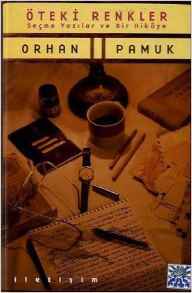What do you think?
Rate this book


440 pages, Paperback
First published January 1, 1999
"إن تاريخ الرواية هو تاريخ التحرر الإنساني: فبوضع أنفسنا في موضع الآخرين، وباستخدام خيالاتنا للتحرر من هوياتنا، نستطيع أن نحرر أنفسنا."
"قيمة الروايات يمكن قياسها بقدر قيمة الأسئلة التي تثيرها حول شكل وطبيعة الحياة."
...